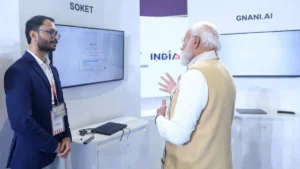Brazil is preparing to host the 17th BRICS Summit in Rio de Janeiro on July 6-7, 2025. This high-profile gathering will bring together leaders from Brazil, Russia, India, China, South Africa, and a select group of invited nations. The summit will serve as an essential platform to discuss crucial global governance reforms and deepening cooperation among countries from the Global South. Established in 2009, the BRICS bloc has grown significantly, now including nations like Iran, Egypt, Ethiopia, the United Arab Emirates, and Saudi Arabia. Turkey, Azerbaijan, and Malaysia are among the countries also seeking membership. This year’s summit is expected to address critical issues that will shape the future of BRICS nations and their global influence.
Why Is the BRICS Summit in Rio de Janeiro So Important?
The upcoming BRICS Summit is seen as a significant event for various reasons. It marks a turning point in how emerging economies plan to align themselves on the global stage. Leaders will focus on strategies for strengthening economic and political cooperation, discussing new mechanisms for governance, and promoting shared prosperity among the member countries. The growing importance of BRICS on the world stage, alongside the bloc’s expansion, means that this summit could define new paths for global trade, finance, and diplomatic ties in the coming years.
Moreover, the inclusion of countries like Iran and Saudi Arabia further demonstrates BRICS’ potential to shift global dynamics. These additions represent a broader outreach to nations from different regions, with each of them bringing unique strengths to the table, whether in energy, trade, or technology. The summit’s outcome could potentially open up new avenues for cooperation, positioning BRICS countries as key players in reshaping international economic systems.
How Does U.S. Tariff Threat Affect the BRICS Summit?
In a related development, U.S. President Donald Trump has issued a stern warning to BRICS nations, cautioning that they could face 100% tariffs from the United States if they establish a new currency or payment system that challenges the U.S. dollar’s dominance in global trade. This threat adds an extra layer of complexity to the summit discussions, highlighting the ongoing tensions between the U.S. and the BRICS bloc over financial sovereignty. Trump’s comments reflect concerns within the U.S. administration about the growing financial influence of BRICS, especially if these nations push for alternatives to the dollar-based global system.
The U.S. has long held a dominant position in the world’s financial markets, with the dollar serving as the primary currency for international trade and reserves. However, as BRICS nations explore alternative currency systems, the U.S. is keen to protect its economic interests. This could lead to a tense standoff at the summit, where BRICS countries will likely have to weigh their aspirations for financial independence against the threat of retaliatory tariffs from one of the world’s largest economies.
What Does the History of BRICS Tell Us About Its Future?
The BRICS grouping was formed in 2009 by Brazil, Russia, India, and China, with South Africa joining in 2010. Over the years, the bloc has increasingly asserted its influence, moving beyond just economic collaboration to address political, social, and environmental challenges that affect the Global South. The group’s expansion reflects its growing clout on the world stage, with more countries looking to join the bloc as it seeks to challenge the Western-dominated international order.
Looking ahead, the BRICS Summit in Rio will likely continue this trend of expansion and greater cooperation. The summit will not only address the immediate concerns of its members but will also take a long-term view of how BRICS can serve as a counterbalance to the West. Whether it’s through strengthening the global economy, developing new financial structures, or fostering peace and development, the decisions made at the 2025 summit will have a lasting impact on the global political and economic landscape.
A Pivotal Moment for BRICS
The 17th BRICS Summit in Rio de Janeiro promises to be a pivotal moment in the evolution of this influential bloc. With significant discussions expected on economic cooperation, governance reforms, and the growing influence of BRICS in global affairs, the outcome of this summit could reshape how the world interacts with emerging economies. The potential threat of U.S. tariffs only adds further weight to the ongoing struggle for financial sovereignty, making the July summit even more crucial.
Summary of the news
| Why in News | Key Points |
|---|---|
| Brazil to host 17th BRICS Summit in Rio de Janeiro | Summit on July 6-7, 2025 |
| U.S. tariff threat | Trump warns of 100% tariffs if BRICS creates alternative currency or payment system |
| BRICS expansion | Includes Iran, Egypt, Ethiopia, UAE, Saudi Arabia, Turkey, Azerbaijan, Malaysia seeking membership |
| BRICS established | Founded in 2009 with Brazil, Russia, India, China, South Africa (joined in 2010) |
| Purpose of Summit | Discuss global governance reforms, economic cooperation, and financial sovereignty |
| U.S. concerns | Protection of U.S. dollar’s dominance in global trade |



 PM Modi Unveils India AI Impact Expo 202...
PM Modi Unveils India AI Impact Expo 202...
 India To Hosts First-Ever Global South A...
India To Hosts First-Ever Global South A...
 Bharat Bodhan AI Conclave 2026 Kicks Off...
Bharat Bodhan AI Conclave 2026 Kicks Off...








